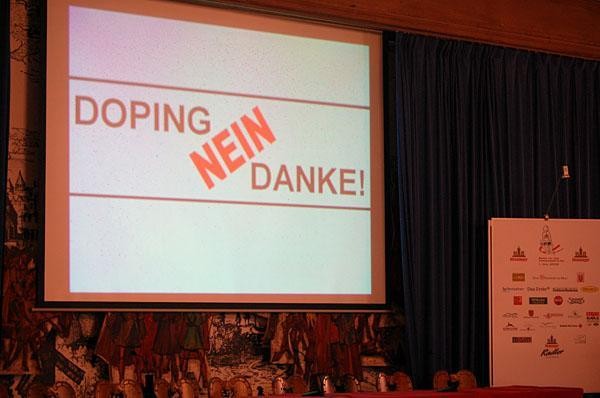German TV must broadcast Tour says EBU chief
By Shane Stokes European Broadcasting Union President Fritz Pleitgen has reiterated comments made...

Says Armstrong's return increases pressure on German TV, wants retests
By Shane Stokes
European Broadcasting Union President Fritz Pleitgen has reiterated comments made earlier this year, stating that he believes that the contract between Tour de France organisers ASO and German TV broadcasters ARD and ZDF is a valid one.
"We have a firm position concerning the contract, the agreement we have signed with ASO," he told Cyclingnews, referring to the agreement the EBU negotiated on behalf of its members. "We are sure it is binding and we have let our partners ARD know that this is the case."
ARD and ZDF originally announced on October 16 that, because of the continued doping scandals associated with cycling, they would ditch their plans to screen the race in 2009. Both had previously pulled out of coverage of the 2007 Tour when Patrick Sinkewitz (T-Mobile) was announced as being positive. They returned to coverage of the race this season and negotiated, via the EBU, to show the Tour de France again from 2009 to 2011.
However, the CERA positives of Gerolsteiner riders Stefan Schumacher and Bernhard Kohl caused a rethink. ARD shelved its plans and ZDF stated it couldn't go it alone.
"ARD came out with a joint bid with ZDF, so if they want to come back to this, then they have to do this together with ZDF," said Pleitgen. "I think they are already in contact with ZDF but I do not know how far they got. ZDF has a firm view on this and says that this agreement is binding for both."
Get The Leadout Newsletter
The latest race content, interviews, features, reviews and expert buying guides, direct to your inbox!
Both broadcasters are understood to have clauses in the contract requiring the Tour de France to employ "the most modern anti-doping controls" available. As Tour organisers introduced first-time tests for CERA this year, it is uncertain as to whether ARD would win a case stating otherwise.
Pleitgen does acknowledge that both broadcasters are in a difficult situation due to political and media pressure in Germany. He states that Lance Armstrong's return to the Tour further complicates matters; in 2005 ASO stated that it believed the American had serious questions to answer about retests, which it said showed that he used EPO in the 1999 race. However, the organiser now appears willing to let the Astana rider return.
"The situation is not clear, and could become even more complicated in that Lance Armstrong could also compete," stated the EBU president. "That could make it very, very complicated for the Germans, as the pressure will grow. I don't know how they would come out of this situation as, at the time when they signed this contact, there was not the slightest hint that he would start his career again.
"I personally have a lot of respect for him [Armstrong], how he fights cancer, but I have also questions concerning his past. There are still a lot of doubts whether he used performance enhancing medicine or not. As long as this is not clearly revealed and investigated, then it means the situation here in Germany is a very, very complicated one for both ARD and ZDF. If he competes, then the attacks from all the sides, by newspapers and publications and the board members of the stations will increase and make things more difficult."
Pleitgen said that he would recommend that Armstrong either does not compete in the race, or that he agrees to have his samples from previous editions of the Tour retested, thus removing doubts about his victories.
A feature on the German TV situation will appear soon on Cyclingnews.